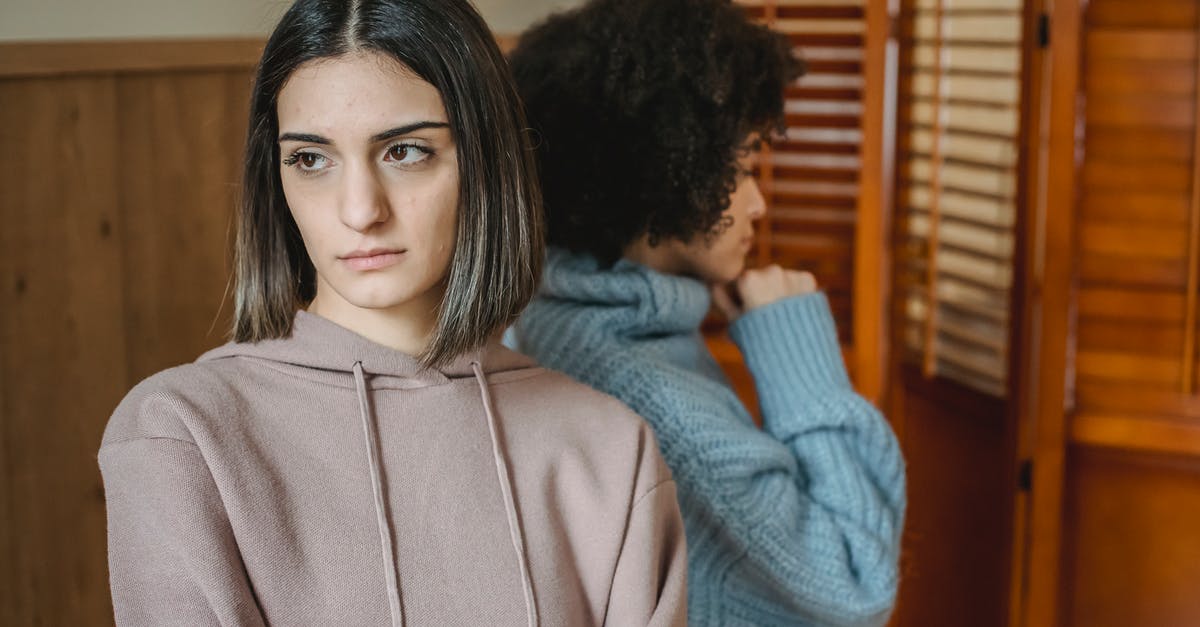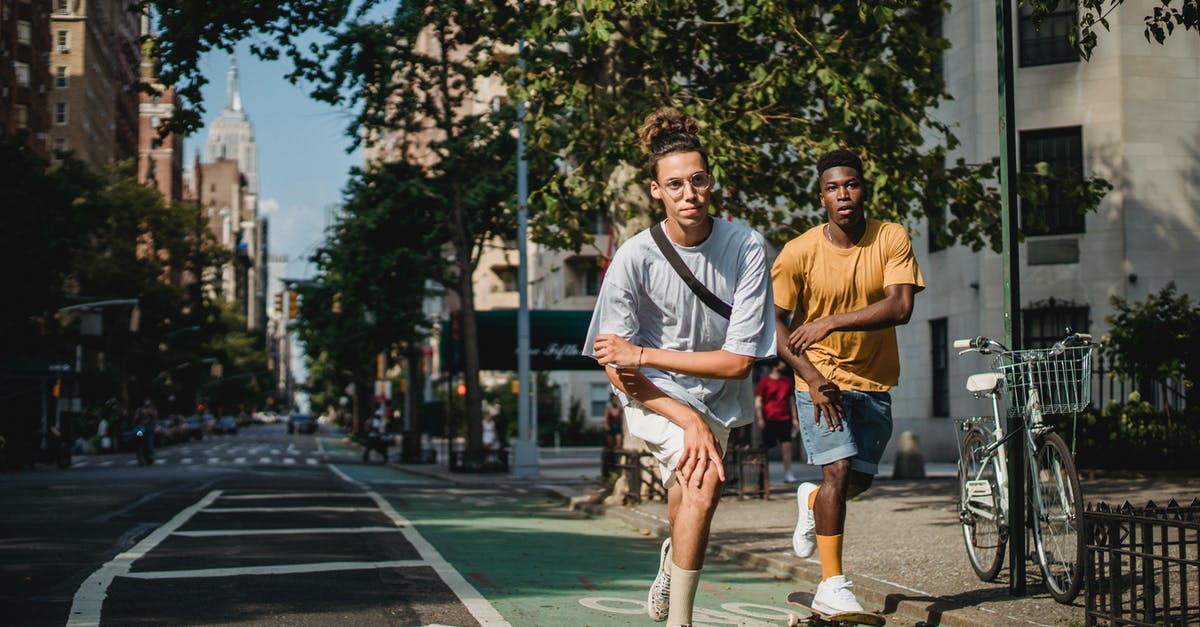Should my friend with a drug offense as a minor apply for US visa waiver?

My friend is a UK citizen, and when she was 17 she was present in the house of a drug dealer when police raided it. I'm not clear on all the legal technical details, but my understanding is that she was convicted of something drug related, but given a suspended sentence. She did not participate in the drug dealing herself.
She has submitted form DS-160 to try to get a visa. She reported and explained the incident in her responses to relevant questions on the form. She has had one interview, but they need to investigate some details of something and scheduled a followup interview that's months away.
If she applies for a visa waiver, hoping to be able to travel sooner, she would answer "Yes" for the second and third eligibility questions, regarding arrest/conviction for crimes involving serious harm or property damage, and illegal drugs. For both questions, this would be referring to the incident I described from when she was 17. She is now in her twenties.
Does the visa waiver application allow entering an explanation for such things?
More importantly, how good or bad would her chance of getting approved be? If it gets denied, would that have any potential consequence beyond the cost of the processing fee?
Best Answer
The normal recommendation for someone in your friends general position is to attempt the ESTA application, and if it is denied (which it almost certainly will be), then apply for a visa. There would be no downside to applying for the ESTA in a situation like that.
However in this case, she has already applied for the visa, so things are a little different.
The actual situation is likely a little different to what you've described. Generally the consulate would not "investigate some details of something", and it's unlikely there would be a second interview.
Far more likely, what's actually occurred is that your friend was found ineligible to obtain a US visa, and her application was denied. That doesn't so much mean that the US consulate staff decided not to give her a visa, it means that she met one of the criteria that under US law actually mean she is not eligible to obtain a visa. In this case, the staff have no choice in the matter - she is ineligible, and thus her application has to be denied.
Once her application is denied, there is a process that can be followed to request a "Waiver of Ineligibility", which is basically a request to have the issue that makes the person ineligible for a visa ignored - thus leaving them eligible to obtain a visa (but not, directly, granting them one). The fact that the consulate staff allow this option means they consider that there is at least a chance the waiver will be approved - but it's far from a certainty. It also means that the consulate staff have determined that, other than the issue that made the person ineligible, the person would otherwise likely be eligible for a visa.
Waivers of Ineligibility generally take many months to be processed (6+ months). If (and it's very much an if!) it's approved, the consulate staff will be notified, and in most cases would simply approve the visa based on the previous interview - although they may choose to re-interview the person instead.
Now, to your specific question of whether it's worth applying for an ESTA. In this case, no. It's not. In addition to having to answer 'yes' to the question regarding arrests/drugs, your friend would also have to answer 'yes' to the question regarding having had a US visa previously denied. Plus of course the US immigration systems will be aware of the previous visa denial. The odds of the ESTA being approved is, literally, zero. Doing so probably will not impact her pending waiver of ineligibility, but given there is no chance of approval, it simply makes no sense to even try.
Pictures about "Should my friend with a drug offense as a minor apply for US visa waiver?"



Can you get a visa waiver with a criminal record?
In cases where an arrest resulted in a conviction, you may be permanently ineligible to receive a visa and will require a waiver ineligibility to travel to the United States. The Rehabilitation of Offenders Act does not apply to United States visa law.Who qualifies for a waiver of inadmissibility?
Typically, you can use Form I-601 to file for a waiver if: You are an applicant for an immigrant visa or the K or V visas, and you are outside the United States, have had a visa interview with a consular officer, and during the interview, you were found to be inadmissible.Can I go to America with a criminal record for drugs?
Travelling to the USA, in brief. It's important to note that having a criminal record does not automatically bar you from travelling to the USA. Anybody travelling to the US for less than 90 days will be able to travel under the Visa Waiver Programme (VWP).Who is eligible for US visa waiver program?
The Visa Waiver Program (VWP) enables most citizens or nationals of participating countries* to travel to the United States for tourism or business for stays of 90 days or less without obtaining a visa.No US visa waiver, no problem
Sources: Stack Exchange - This article follows the attribution requirements of Stack Exchange and is licensed under CC BY-SA 3.0.
Images: Liza Summer, Budgeron Bach, Budgeron Bach, George Milton
